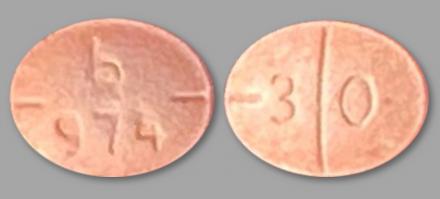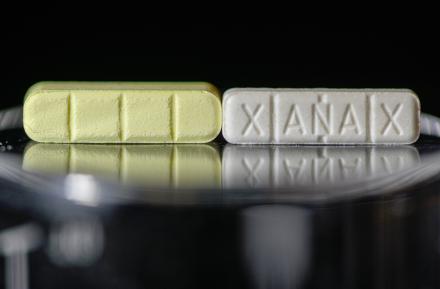
DEA Washington Warns of Deadly Counterfeit Drugs on Social Media
Counterfeit Xanax, OxyContin and Adderall are Being Sold to Kids
DEA Washington, DC Division

Today, Jarod Forget, Special Agent in Charge (SAC) of the DEA Washington Division issued a warning that drug dealers are marketing to teenagers through popular social media apps, selling drugs that look like prescription medication, and delivering counterfeit pills to kids and young adults in our area. Law enforcement officials across the District of Columbia, Maryland, and Virginia are reporting these counterfeit pills causing tragic overdose deaths across the region.
Embraced by drug dealers, and buyers, for its simplicity and global reach (especially after pandemic lockdowns) the internet has become the marketing tool of choice. While large drug trading websites like Dream Market or Silk Road have been shut down, social media has emerged as a flourishing new marketplace made up of thousands of small-time dealers who sell both large and small amounts of drugs to individual users in local communities.

This issue has become such a problem in the D.C.-metropolitan area and surrounding states, the DEA Washington Division has worked with area partners and launched a summer awareness campaign specifically targeting the deadly counterfeit pills they are seeing kids, teens, and young adults ordering online.
SAC Jarod Forget says these sales often involve young people who use apps like Snapchat and Instagram to connect with dealers and order pills they think are safe, but oftentimes prove deadly.
“These cartels are marketing to our children, to young adult kids in our area. With every pill that slips through the cracks, more lives are lost,” SAC Forget said. “Only one life lost – of our children, our family members, our neighbors – is one too many. We’re dedicated to educating the public about what’s going on and helping keep our area residents and families safe.”
The DEA Washington Division has confiscated thousands of counterfeit pills over the past few months and laboratory tests have found over one in every four pills (26%) to contain a deadly amount of fentanyl. These fake pills, loaded with the synthetic opioid fentanyl, and made to look exactly like actual pharmaceuticals, are flooding into the District of Columbia, Maryland, and Virginia via Mexican cartels.

The process begins in China where fentanyl, or the chemical ingredients to make it, are produced. These chemicals are shipped to Mexico, where the cartels produce the fentanyl powder in massive amounts. This deadly drug is then mixed with other chemicals and pressed into pharmaceutical-grade pills that appear to be Xanax, OxyContin, Adderall, or other popular drugs. Once made, the Mexican cartels pass it on to dealers who sell these fake pills using social media apps, to unsuspecting teens and young adults.
Kids, teenagers, and young adults are using apps on their phone to order drugs. There have been a number of instances in just the past few weeks where teenagers will order pills online, go take a walk to pick them up, come right back in, go to their room, ingest a pill, and pass away.
The overdose crisis is not new, but the danger is more complex than that. Prescription medications like Xanax and OxyContin are among the most commonly abused pills. With many people feeling these pills are “safer” than drugs like heroin or cocaine. This misconception can prove deadly on its own, but even deadlier considering many of the “prescription” pills being sold now are not what they appear.
We’re seeing that many of these pills are impossible to tell, on sight, if they are “real” or “fake,” and they are often found to contain deadly amounts of fentanyl,” SAC Forget explains. “Only two milligrams of fentanyl is enough to cause an overdose, and what these cartels are selling to our kids, without any regard for a child’s life, is unfathomable.”
The DEA says it’s working with social media companies and on the DarkWeb to help catch those using these methods to sell drugs. SAC Forget says to stay connected with your children – learning more, having conversations about the dangers of these drugs, and keeping watch of their habits and interactions on- and off-line. Watch for a change in behavior and question any quick trips to meet a friend outside the home.
If you or someone you know is struggling with addiction or to learn more about how to speak with children about the issue, please check out SAMHSA’s “Talk. They Hear You” resources or call the National Helpline at 1-800-662-HELP (4357).
Stay informed. Keep your family safe. Together, we’ll build a better community.
